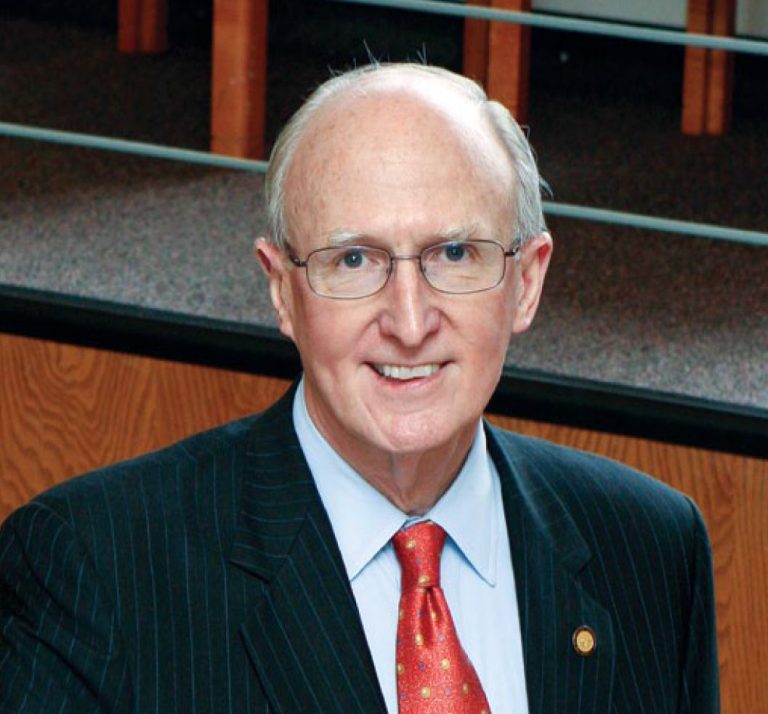
By Robert A. Scott
College students, no matter their age, whether recent high school graduates or adults entering college for the first time, and even those returning to college after years of child-rearing or pursuing a career receive a great deal of advice. They are told how to choose a college, how to choose a major, how to finance a college education and even how to study and take tests. But little advice is available on how to “approach” a college education, about how to get the most out of college.
Getting the most out of college requires that we match our interests, motivation and abilities to an institution’s culture, its commitment to student success, its approach to student development. We consider “approach” in most other endeavors, whether in sports, clubs or romance. Likewise I believe we should consider the approach of those who would educate us or our family. Indeed, we should understand our own approach to education.
I express my approach, my philosophy of education by using several words that begin with the letter “I.” The key words are simple; they are inquiry, integration, involvement and independence.
By inquiry, I mean the spirit of inquisitiveness. This means that we should, and our students should, and our faculty should, ask those fundamental questions asked by journalists everywhere: who, what, where, when, why and how? We and our students and our teachers should ask those questions at the end of each chapter, at the end of each class session, at the end of a conversation. We should be inquisitive in order to deepen our understanding as well as our knowledge. Closely related to the spirit of inquiry is the application of imagination. We can improve the questions we ask by imagining that we are in the other person’s shoes, and by imagining the subject from another vantage point. By inquiring and imagining, we show that we approach every subject with serious intent.
The second key word starting with “I” is that of integration. Too often teachers, and consequently students, think of knowledge as belonging to a special compartment: English in the English box, and math in its own section. This, of course, is not the way professionals think. As professionals, we draw upon our knowledge and experience in a variety of fields. We address a topic in economics by considering historical and behavioral questions with the perspective of history and psychology. This is what we mean by integration – we help students see the interconnectedness, the interdisciplinarity of subjects. We emphasize this through our teaching methods, the design of our courses, even the makeup of our programs.
The third word beginning with the letter “I” is involvement. John Dewey was correct: we learn by doing. We learn by exercising our talents, by using both our knowledge and our analytical skills, by expressing our ideas, by assuming positions of leadership and by participating. To be involved is to be fully engaged, emotionally as well as intellectually.
Too often students at colleges and adults in communities stay at home and do not contribute to the greater good. They not only deny their talents to the community, but also they fail to hone their skills and build their reservoir of experience. We know that students learn best and succeed more when they are involved. We should encourage involvement and exploration. As Swedish designer Josef Frank said, “The world is a book and they who stay at home read only one page.”
Furthermore, through engagement and exploration, we will learn more about ourselves as persons. T. S. Eliot captured this notion when he wrote, “We shall not cease from exploration, and the end of our exploring will be to arrive where we started and know the place for the first time.”
The sum of these steps is the fourth “I”, independence as an individual. Inquisitiveness, integration and involvement all contribute to our becoming an independent person, one who in many ways is more fully human, aware of our desires and our biases. Independent, though, does not mean distant or aloof from others. An independent person is one who has confidence in his or her abilities, is willing to ask for help and to give it and is committed to the broader community as well as to personal interests.
We become more complete as individuals because of the experience in a family group or other nurturing arrangement. We become more fully independent individuals when we are inquisitive, when we exercise our imagination, when we do not allow our thoughts, experiences, and observations to be limited to separate compartments. We become more fully complete when we contribute to the betterment of society, whether it be in our dormitory, campus, neighborhood, community, state, or nation.
These four key words are the building blocks for an effective undergraduate education. They help prepare graduates in character and for citizenship as well as for careers and commerce. Students who apply all four will benefit fully and get the most from their college education.
Robert A. Scott i President Emeritus of Adelphi University






